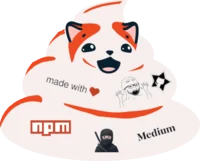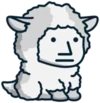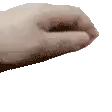The Official RDrama Computer Science Reading Group
My dear !codecels, hello and welcome to the first meeting of RDrama's Computer Science Reading Group! Here's the idea - we (read: I) pick a computer science textbook, then post a list of sections and exercises from that textbook each week. In the thread, feel free ask questions, post solutions, and bully people for asking stupid questions or posting stupid solutions. If you don't want to read along, I'll post the complete exercises in the OP, so you can solve them without needing to read the book.
SICP
The book I'm starting with is 'the Structure and Interpretation of Computer Programs' (abbreviated SICP). It's a software engineering textbook written by Gerald Jay Sussman and Hal Abelson from MIT. The book builds programming from the ground up: starting with a very simple dialect of Scheme and growing it into a language with lazy evaluation, object-orientation and a self-hosting compiler. It's a fun book: the exercises are hands-on and interesting, the writing is informative without being droll, and both the book itself and a corresponding lecture series (complete with a 80s synth rendition of 'Also Sprach Zarathustra') are available for free online.
Languages
The book uses (a small subset of) Scheme as its primary language, but feel free to try using a different language. The book's dialect of scheme is available through Racket, but most lisps will work with only minor changes. Other dynamically-typed, garbage-collected languages with higher-order functions will also not require much hacking: there is an edition written in JavaScript  , as well as a partial adaptation to python
, as well as a partial adaptation to python  . High-level, statically typed languages might also work: Java/Kotlin/C#
. High-level, statically typed languages might also work: Java/Kotlin/C#  seem doable, but I don't know those languages well. Strongly typed languages like Haskell will require some real hacks, and I'd avoid doing it in C, C++ or Rust.
seem doable, but I don't know those languages well. Strongly typed languages like Haskell will require some real hacks, and I'd avoid doing it in C, C++ or Rust.
Exercises
The book is split into five chapters:
- Building Abstractions with Procedures
- Building Abstractions with Data
- Modularity, Objects and State
- Metalinguistic Abstraction
- Computing with Register Machines
This week, I'll be posting exercises from the first chapter. The chapter is pretty easy for those familiar with programming already, so I just want to get it out of the way. Here are the selected exercises:
Exercise 1.8
Newton's method for cube roots is based on the fact that if
yis an approximation to the cube root ofx, then a better approximation is given by the value(x/y² + 2y) / 3. Use this formula to implement a cube-root procedure which is wrong by at most0.01.
Exercise 1.12
The following pattern of numbers is called Pascal's Triangle.
1
1 1
1 2 1
1 3 3 1
1 4 6 4 1
...
The numbers at the edge of the triangle are all 1, and each number inside the triangle is the sum of the two numbers above it. Write a procedure that computes elements of Pascal's triangle.
Exercise 1.18
Devise a procedure generates an iterative process for multiplying two integers in terms of adding, doubling, and halving and uses a logarithmic number of steps.
Exercise 1.31
Write a procedure called
productthat returns the product of the values of a function at points over a given range (product(l, r,step,f) = f(l) * f(l+step) * f(l + 2 * step) * ... * f(r)). Show how to definefactorialin terms ofproduct. Also use product to compute approximations to using the formulaπ/4 = (2 * 4 * 4 * 6 * 6 * 8 ...) / (3 * 3 * 5 * 5 * 7 * 7 ...)
Exercise 1.43
If
fis a numerical function andnis a positive integer, then we can form thenth repeated application off, which is defined to be the function whose value atxisf(f(...(f(x))...)). For example, iffis the functionx → x + 1, then thenth repeated application offis the functionx → x + n. Iffis the operation of squaring a number, then thenth repeated application offis the function that raises its argument to the2 * nth power. Write a procedure that takes as inputs a procedure that computesfand a positive integernand returns the procedure that computes thenth repeated application of f. Your procedure should be able to be used as follows:repeated(square,2)(5) = 625
Have fun! 








Jump in the discussion.
No email address required.
I'm a mathlet, my original plan was reading Knuth's Concrete Mathematics and then "Coding the Matrix" for linear algebra before SICP but I'm not doing that shit I just want to coode
I just want to coode 
 Should I just jump right into SICP?
Should I just jump right into SICP?
Jump in the discussion.
No email address required.
Why?
Sure - SICP is as good an intro book as any. It is a bit abstract and won't teach you a popular language, but it will definitely teach you how to go about writing code.
Jump in the discussion.
No email address required.
Idk its just what was recommended to me, concrete mathematics for a base and coding the matrix for linear algebra but I've been out of formal education too long and it's

I already know how2coode I just want to better understand CS
Jump in the discussion.
No email address required.
Honestly just make projects that vaguely touch what you want to learn. Do you want to learn autismo optimization? Learn C/C++/Rust and learn about how memory allocation works, wanna make a basic telnet/SSH client as an intro to networking? Java/C#/Kotlin has a library for that. Do you want better stackoverflow answers? Find a moderately obscure language (like any Lisp) and watch all those wash away.
wash away.
Literally just make projects, then find books and read relevant parts of them whenever you hit a wall. That's what I'd go for anyway, since the entire point of understanding CS is to write better programs, if you're not gonna write programs, idk what to say. I'll also add that most programming books tend to be a lot slower than necessary in my experience.
Jump in the discussion.
No email address required.
More options
Context
CS is a big field, so "understanding CS" is a hard thing to do. If you want to learn more about programming languages and software engineering, SICP is a good start. Otherwise, there are good books on Compilers, Operating Systems, Graphics Programming, Theory, etc.
Jump in the discussion.
No email address required.
More options
Context
More options
Context
More options
Context
More options
Context